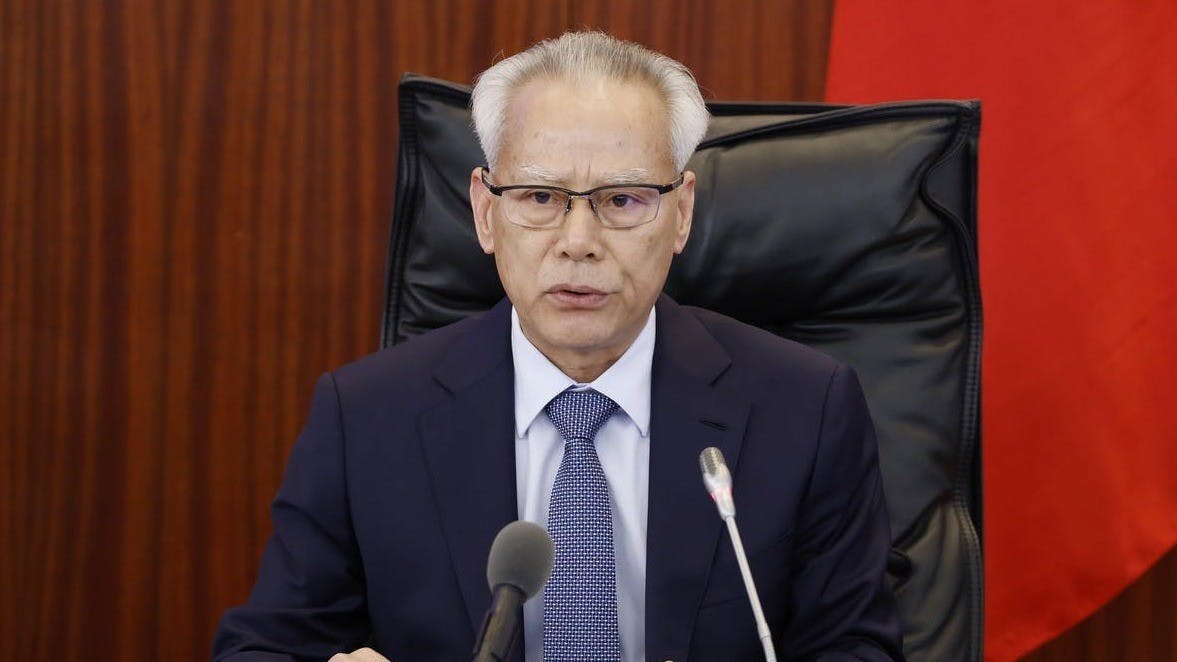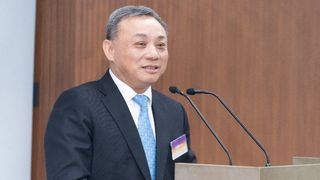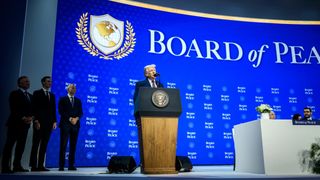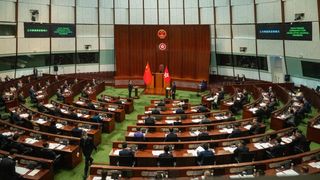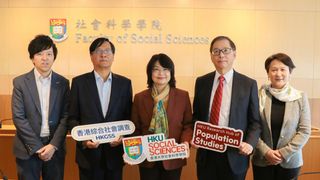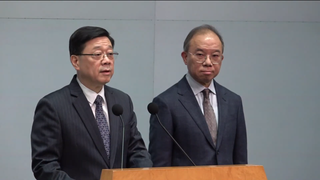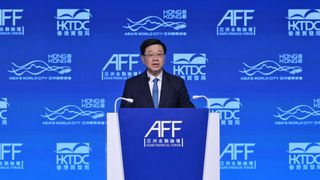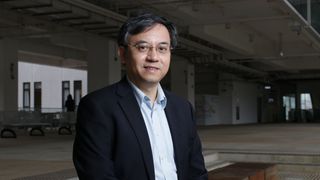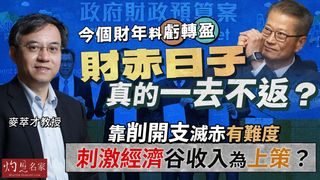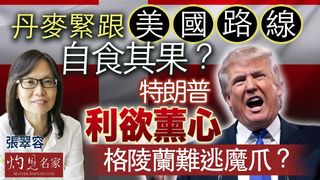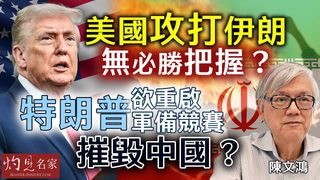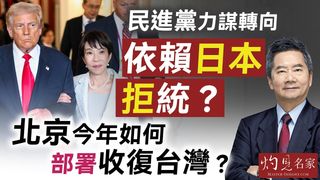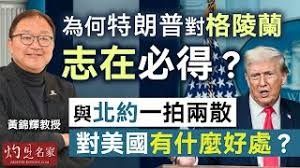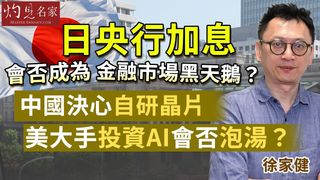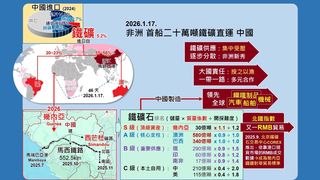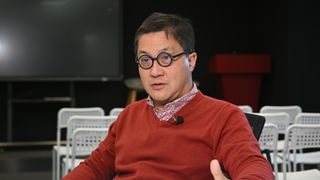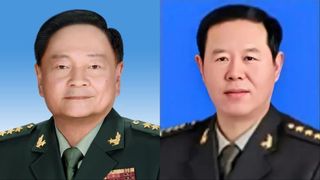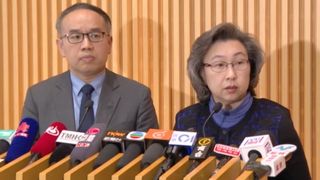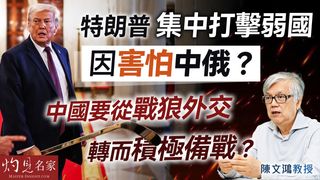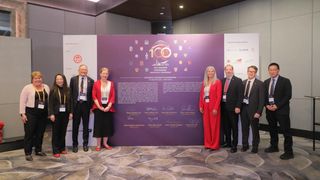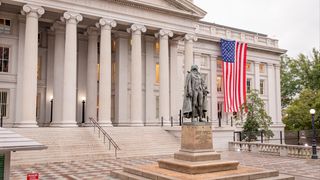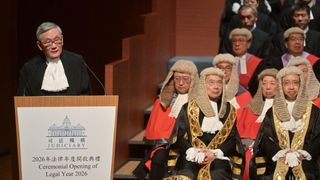澳門特首岑浩輝發表首份《施政報告》,充分展現了他處理澳門民生問題和經濟多元化的政治意願,但澳門官僚機構最終是否能夠落實他的政策舉措,仍然有待觀察。
這份《施政報告》以「革新謀發展 奮進開新局」為題,涵蓋十大重點。
首先,《施政報告》的組織架構與競選綱領的內容相互呼應,同樣強調維護國家主權、國家安全和發展利益,以及解決澳門經濟多元化和民生問題,並提到公共部門改革和法制改革的必要性。與香港的情況不同,岑浩輝將有關國家安全的內容放在《施政報告》後半部分,國家安全問題雖然很重要,但它並不是澳門首要任務。
其次,岑浩輝的《施政報告》強調了澳門「內聯外通」的重要,在這方面它與香港特首李家超近期言論相若。
第三,《施政報告》中概述了澳門面臨的外部和宏觀層面的挑戰,並隨後闡述了《施政報告》的內容。具體而言,地緣政治變化、美國保護主義、多邊主義、中國尋求持續開放和深化改革,為《施政報告》提出的改革內容提供了背景。
設六個工作組 協調重大事務
第四,《施政報告》希望解決澳門官僚機構缺乏強有力的領導和協調的問題。為此,他設立了六個領導小組及工作組,協調跨範疇重大事務的推進:
設立公共行政改革領導小組,由行政長官任組長;
設立促進橫琴粵澳深度合作區建設領導小組,由行政長官任組長;
設立公共行政改革統籌協調小組,由行政法務司司長任組長;
設立法律統籌工作組,由行政法務司司長任組長;
設立市容美化整潔工作組,由行政法務司司長任組長;
設立優化道路工程協調工作組,由運輸工務司司長任組長。
然而,這些改革能否成功取決於兩個關鍵問題:
中下層官僚機構是否會真正執行改革計劃;
將利用什麼樣的關鍵績效指標來確保改革措施順利實施。
第五,《施政報告》提到民生和經濟措施,長期而言會帶來龐大的政府開支,包括增加對中小企業的補貼、發放更多的傷殘補貼和失業救濟金、加強對老弱和公共醫療保健服務的財政資助、財政支持部分年輕人到灣區工作,並提供更多的職業建議、通過增加補貼來刺激出育率和結婚等,所有這些措施對公共財政的影響程度仍有待觀察。
然而,在中美關稅戰的背景下,加上中國內地經濟逐漸放緩,以及隨之而來的內地遊客到澳門博彩和消費的減少,澳門博彩業的收入可能會出現波動,仍須謹慎觀察。
第六,岑浩輝提到深度合作區人流不足、橫琴商業空間使用率低、提供給區內澳門人的公共服務不能滿足需求、需要更多的戰略投資,以及橫琴證券債券中心的發展等問題。
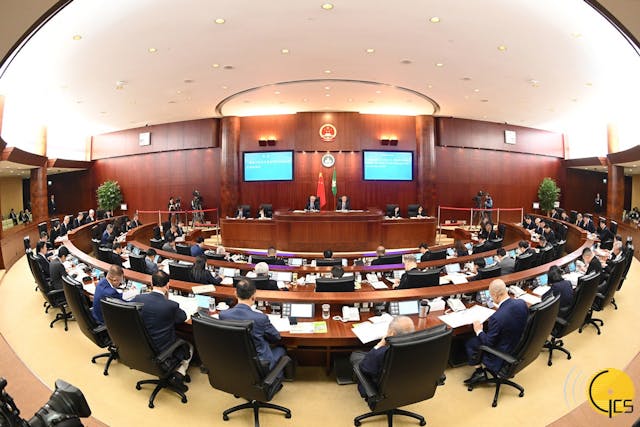
推進橫琴深度合作區改革
因此,他成立的推進澳門橫琴深度合作區改革領導統籌小組具有及時性和政治意義,但如何透過《證券法》、《投資基金法》的頒布以及自貿試驗區採取的法律和監管措施,調動公共部門和私營的投資,以及如何加速證券和債券中心的建設,還有待觀察。
儘管如此,澳門與橫琴地區融合發展的經濟多元化的輪廓和計劃,還是首次出現在這份《施政報告》中,這一舉措自然在他發表講話當天,立即得到了內地負責澳門事務的官員的公開讚揚。
第七,岑浩輝提到需要從包括葡萄牙在內的葡語國家引進全球人才,亦關注深度合作區的國際大學校園建設速度,以及如何吸引內地產業與澳門大學的科研合作,以實現技術進步。
產學合作是岑浩輝提出一個很好的想法,但這需要澳門各大學的當局和領導坐下來與澳門乃至內地,特別是大灣區的政府和私營企業討論,科研如何進行,中醫藥如何通過創新研究「西化」和進一步發展,以及如何在華南地區開發新的專利。此外,他鼓勵澳門賭場特許經營商投資深度合作區,但具體細節仍須細化,以便動員商界有效推動澳門經濟多元化。
第八,鑑於澳門收入的很大一部分仍然來自博彩業,賭場資本主義仍將是當地經濟的支柱。因此,岑浩輝的《施政報告》繼續強調維護澳門文化、歷史遺產、獨特食品,以及保留其在中國一帶一路倡議中的重要作用是明智的。
第九,為了保留澳門的歷史獨特性和建築美感,需要大量政府資金和投資,舊區重建當局必須多考慮籌募融資細節、有針對性的重建過程和分階段發展,以保持澳門對旅客的吸引力。
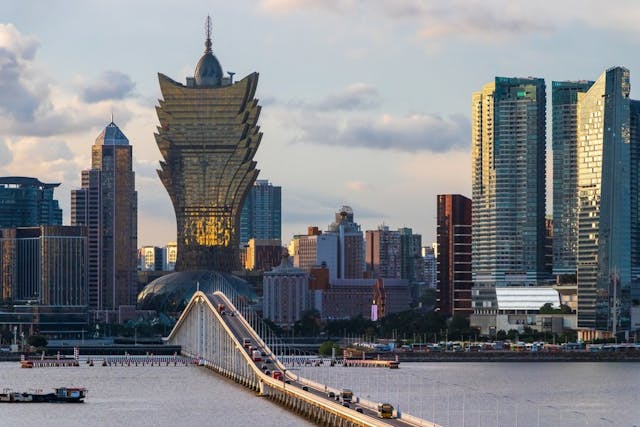
特別強調法律改革
第十,最後一點,身為前法院法官,岑浩輝在首份《施政報告》中特別強調了法律改革,包括需要更新《行政法典》和《民事訴訟法典》,以及讓橫琴深度合作區與澳門的規章制度同步的重要,以加快人與人交往和社會經濟融合。
總而言之,岑浩輝的《施政報告》相當全面且進取,為擺脫以往對賭場資本主義的過度依賴,積極推動澳門經濟多元化發展。
儘管如此,從結構上來說,澳門仍將繼續以賭場資本主義為主要支柱,但其社會福利主義仍然是澳門治理的另一核心。岑浩輝的首份《施政報告》對改革澳門、經濟多元化和改善民生表達強烈的政治意願,但其主要挑戰仍然在於澳門中下層官僚機構能否真正有效地落實政策舉措。
因此,未來幾年,為了激發公務員更加努力工作、更有效地開展工作、培養更好的中下層領導者的公共行政改革,將需要更好的績效評估機制和更多的在職培訓。
Sam Hou Fai’s maiden Policy Address and the politics of reform in Macau
While Macau Chief Executive Sam Hou Fai’s maiden policy address has fully demonstrated his political will and comprehensive plan to cope with the livelihood issues and economic diversification of Macau, ultimately the extent to which the Macau bureaucracy can and will implement all his policy initiatives remains a political question that remains to be observed.
Entitled “Reform for the sake of Development, Diligent Progress as Opening a New Chapter,” Sam Hou Fai’s maiden policy address has ten defining characteristics.
First and foremost, the organisational structure of his policy address is parallel to his election campaign platform, in which both documents have emphasised the protection of China’s sovereignty, national security and developmental interests, stressed the primacy of addressing Macau’s economic diversification and livelihood issues, and mentioned the necessity of public sector reform and legal reforms. The section on national security in Sam’s election campaign platform and his most recent policy address tended to be put in the later part of the two documents, illustrating his pragmatic assessment that Macau’s national security issues, albeit important, are not the top priority in the Macau Special Administrative Region, unlike the Hong Kong case.
Second, Sam’s policy address has stressed the importance of making Macau “internally connected with the mainland and externally interactive” with other countries in the world – a theme mentioned by China’s government report during the March session of the National People’s Congress. In this aspect, Sam’s approach is to adhere to the central government’s policy line – an approach that can be simultaneously seen in Hong Kong Chief Executive John Lee’s recent remarks.
Third, Sam’s approach to dealing with Macau’s policy address has followed the structural perspective of the central government in Beijing, namely outlining the external and macro-level challenges to Macau in his policy address, and followed by the content of his policy initiatives. Specifically, the geopolitical changes, the US push for protectionism, the Chinese emphasis on multilateralism, and China’s quest for continuous opening-up process and deepening reforms provide the context of Sam’s policy address. This approach mirrors John Lee’s 2024 policy address in Hong Kong – a phenomenon showing that the two chief executives in Macau and Hong Kong have been learning fast and adapting to the structural perspectives of the central government in writing up their policy address.
Fourth, what distinguishes Sam Hou Fai’s maiden policy address from any other policy address delivered by his predecessors in Macau, ranging from Edmund Ho to Fernando Chui to Ho Iat Seng, is that he is tackling the lack of strong leadership and forceful coordination in the Macau bureaucracy. Unlike all his predecessors, Sam Hou Fai has remained quite openly critical of Macau’s bureaucratism and red tape, pointing to the lack of intergovernmental coordination.
As such, he set up six leading and coordination committees: (1) the public administrative reform leading group chaired by the Chief Executive; (2) the leading group of promoting the construction of the In-Depth Cooperation Zone chaired by himself; (3) the coordination group on public administrative reform chaired by the Secretary for Administration and Legal Affairs; (4) the coordination work group on legal reforms chaired by the Secretary for Administration and Legal Affairs; (5) the working group on urban image, beautification and hygiene work chaired by the Secretary for Administration and Legal Affairs; and (6) the coordination working group on the improvement of road work chaired by the Secretary for Transport and Public Works.
The establishment of these committees is an unprecedented move made by the Chief Executive of Macau to address the problems of the lack of leadership and the persistence of weak coordination among the government departments. The leading groups on the In-Depth Cooperation Zone and on public administrative reform that are to be chaired by Sam himself illustrate how eager he is toward the necessity of formulating and implementing not only a faster pace of economic diversification but also public administrative reforms.
However, the extent to which these reforms will be successful depends on two critical issues: (1) whether the bureaucracy at the middle and lower strata will really implement Sam’s reform plans, and (2) what kinds of key performance indicators will be utilised to ensure “perfect” or smooth implementation. Quite often, Macau’s bureaucracy is hampered by red tape and lack of strong leadership at the middle and lower levels. For example, since December 1999, the Macau government has been often consulting public opinion in public opinion hearings and other platforms, but it remains unclear how it categorises, analyses and utilises such opinions. Some citizens have already demanded that the government should consider how to use Artificial Intelligence to collect public opinion and to respond to public views in a coherent platform along the line of the mainland’s 12345 public administrative affairs (Macau Daily News, April 19, 2025).
Sam Hou Fai’s political will of reforming Macau’s bureaucracy is undoubtedly strong, but the challenge to his reform plans is whether the middle and lower level of the government officials can and will conduct his reform initiatives in a more effective and efficient manner.
Fifth, Sam’s policy address is characterised by considerable government expenditures – details that will perhaps be revealed in the financial budget later. Yet, his livelihood and economic measures of providing more subsidies to small and medium enterprises, giving out more disability subsidies and unemployment benefits, supporting the elderly and children with more funds, providing more public health care services, subsidising some young people to work in the Greater Bay Area and giving them more career advice, and stimulating birth rate and marriages through more subsidies, will all incur sizeable government expenditures in the long term. The extent to which all these measures will impact on public finance remains to be observed.
Yet, given the context of the US-China tariffs war, and given the gradual slowing down of the mainland Chinese economy and its concomitant dampening effects on the number of mainland tourists going to gamble and spend in Macau, the revenues coming from the Macau gaming industry will likely fluctuate and remain to be observed with caution.
Hence, as a newly elected Chief Executive, Sam Hou Fai’s maiden policy address is naturally marked by more government spending on social welfare, public health and public housing initiatives, but the extent to which all these spending measures will impact on public finance remains to be seen. If the government is going to encourage more investment from not only the public but also the private sector on the development of the In-Depth Cooperation Zone, as Sam mentioned in his policy address, the situation of public finance will become less tight eventually.
In short, the impact of Sam’s policy address on public finance remains unclear and needs further observation.
Sixth, unlike his predecessor Ho Lat Seng and his subordinates, who appeared uncertain about how to implement economic diversification, Sam Hou Fai has demonstrated a clear and well-developed understanding of how to pursue it. He openly mentioned the lack of human flows into the In-Depth Cooperation Zone, the lack of usage of commercial space in Hengqin, the inadequacy of public services for the Macau people residing in the Zone, the need for more strategic investment, and the development of the securities and bonds centre there.
Therefore, the leading and coordination groups he set up for the push of reforms in the Macau-Hengqin In-Depth Cooperation Zone are timely and politically significant, filling in the necessary gap in the integration process. Still, it remains to be seen how public-sector and private-sector investment will be mobilised, and how the securities and bonds centres will be accelerated through the enactment of the Securities Law, the Investment Fund Law, and the legal and regulatory measures adopted by the Zone. Nevertheless, the contours and the plans of economic diversification of Macau through its integration with the Hengqin area are for the first time seen in Sam’s policy address – a progressive step that naturally brought about immediate praise and open appreciation by the mainland Chinese officials responsible for Macau affairs on the day Sam delivered his address.
Seventh, there are gaps to be filled by the Macau government in the implementation of Sam Hou Fai’s comprehensive plan. These include how the global talent scheme is and will be implemented (understandably more mainland talents than “global” talents, although Sam mentioned the need for the import of global talents from Portuguese-speaking countries, including Portugal), how fast the international university campuses are to be developed in the In-Depth Cooperation Zone, and how the mainland industries will be lured to cooperate with the Macau universities in mutual research and joint cooperation in bringing about technological advancement.
The idea of university–industry partnership is a good one raised by Sam, but this requires authorities and leaders from all Macau universities to sit down and discuss with the government and private-sector corporations of not only Macau but also the mainland, notably those in the Greater Bay Area, how scientific research will be conducted, how Chinese medicine will be “westernised” and advanced further through innovative research, and how new patents will be developed in the South China region. Furthermore, Sam Hou Fai has encouraged Macau’s casino concessionaires to invest in the In-Depth Cooperation Zone, but the details will have to be delineated so that the mobilisation of private-sector corporations will be truly effective in Macau’s quest for economic diversification.
Eighth, given that a huge portion of Macau’s revenues still comes from the gaming industry, casino capitalism will remain the mainstay of the local economy. As such, it is wise for Sam Hou Fai’s policy address to continue emphasising the importance of maintaining Macau’s culture, historical heritage, unique food products, and of retaining its vital role in China’s Belt and Road Initiative. Tourists from mainland China and other parts of the world will continue to be attracted by Macau’s casino hub, although the official Chinese perspective is to dilute its features away from casino capitalism to a more diversified economic developmental scenario.
Ninth, one area that Sam’s policy address has not discussed in detail is the urgency of urban redevelopment and renewal of many old districts and old yet historical buildings – an issue that was followed up by at least one Legislative Council member one day after his policy address. Urban renewal requires a lot of government funding and investment. To retain Macau’s historical uniqueness and architectural beauty, the urban renewal authorities will have to give more thought to the details of fund-raising, the targeted renewal processes, and stage-by-stage development so that Macau will remain attractive to tourists from the mainland and other parts of the world.
Tenth and finally, as a former court judge, Sam Hou Fai put a lot of emphasis on legal reforms in his maiden policy address, including the need to update the Administrative Code and Civil Litigation Code, and the importance of making the rules and regulations of the In-Depth Cooperation Zone synchronise with those in Macau so that a faster process of human interactions and socio-economic integration will take place. Viewed from the integration perspective, legal reforms are imperative, and they embrace the mixture of mainland Chinese rules and regulations with those in Macau – a process of legal harmonisation that takes time.
In conclusion, Sam Hou Fai’s policy address is quite comprehensive and bold in its push towards Macau’s economic diversification away from its previous overdependence on casino capitalism.
Still, structurally speaking, Macau will continue to be characterised by the main pillar of casino capitalism, but its social welfarism, as shown in the large amount of subsidies in Sam’s policy address, remains another defining feature of Macau’s governance. Sam’s policy address is punctuated by his political will to reform Macau, diversify its economy and improve people’s livelihoods, but the main challenge remains whether the Macau bureaucracy at the middle and lower levels will really be able to implement his policy initiatives smoothly and effectively.
As such, public administration reforms in the direction of stimulating the incentives of civil servants to work harder and perform more effectively, and of nurturing better leaders at the middle and lower levels, will require a better performance appraisal mechanism and more on-the-job training in the coming years.
原刊於澳門新聞通訊社(MNA)網站,本社獲作者授權轉載。(原文按此)





